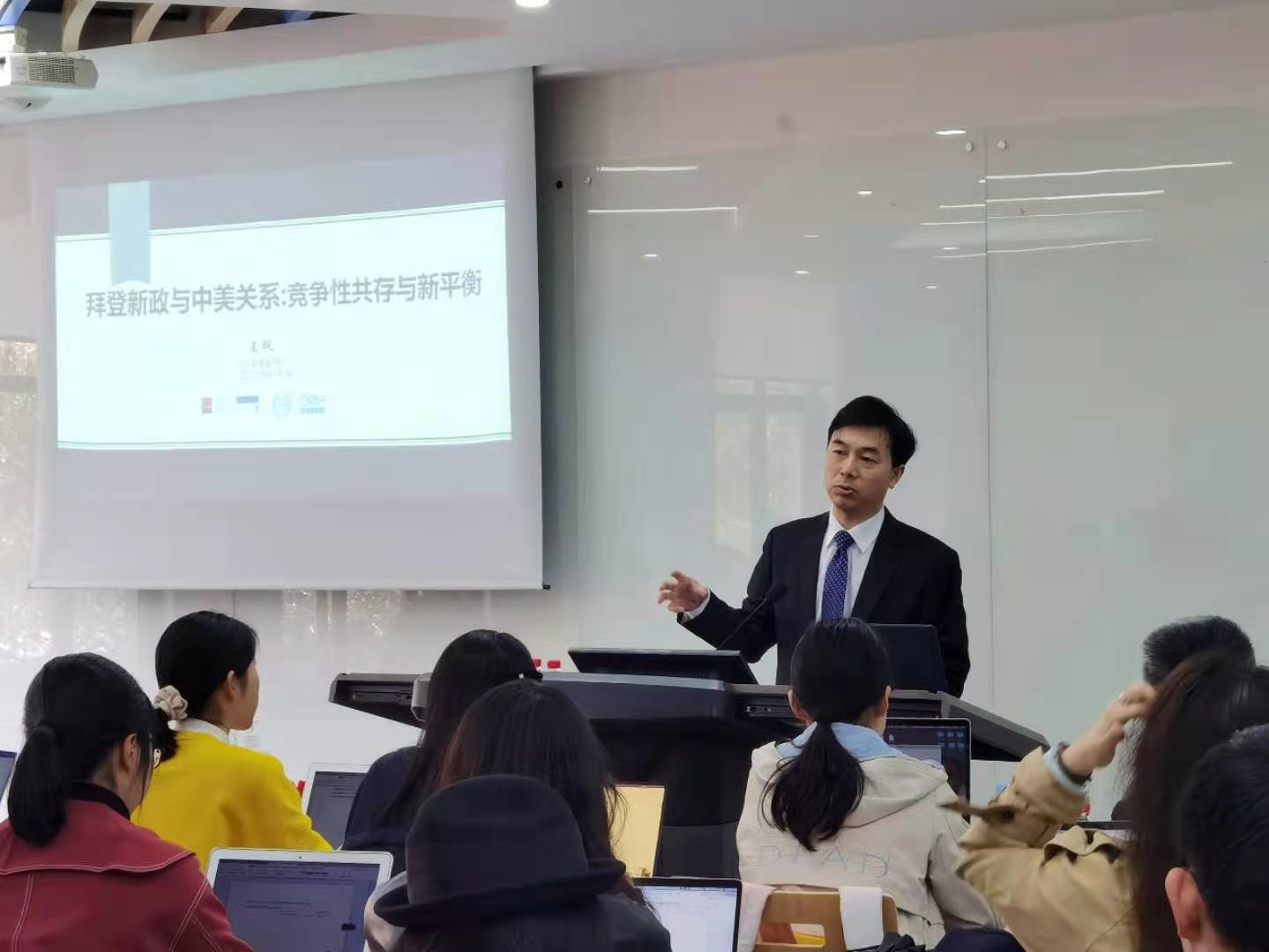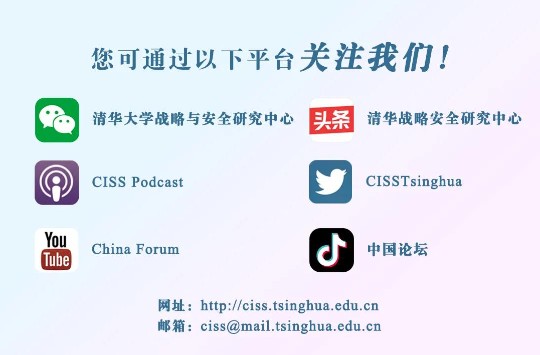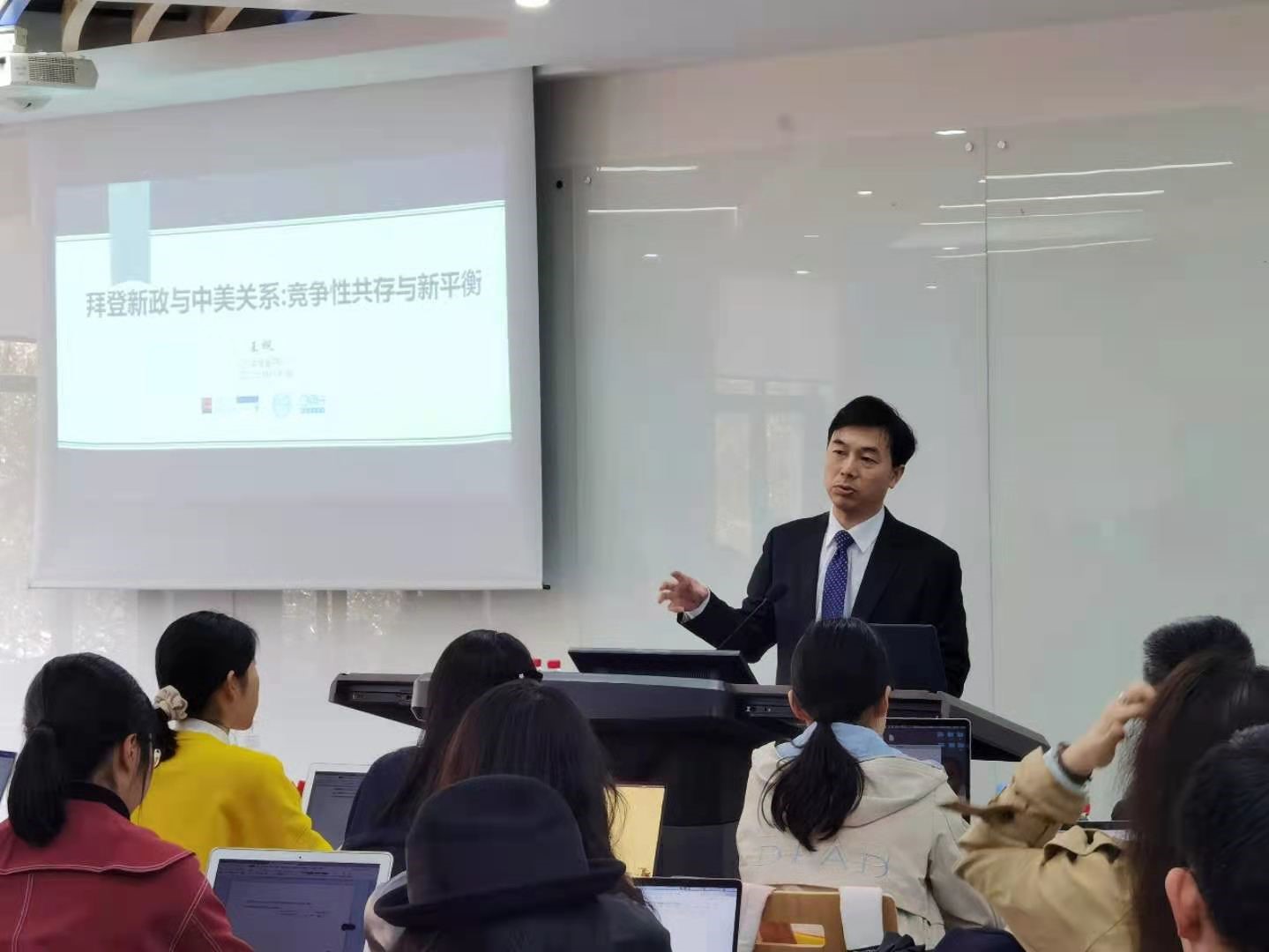On March 26th, Professor. WANG Fan gave a lecture themed “Biden Administration and China-US Relations: Competitive Coexistence and New Balance” to about 100 students majored in foreign affairs and area studies at Shanghai International Studies University. Professor Wang is Vice President of China Foreign Affairs University (CFAU), and Expert of the China Forum under the Center for International Security and Strategy (CISS) at Tsinghua University. The lecture was jointly organized by the Shanghai Academy of Global Governance and Area Studies and CISS’s China Forum.
Since he took office, Biden has faced four major internal crises regarding the epidemic, economy, climate, and racial issues, said Professor Wang. As Biden’s $1.9 trillion emergency relief plan, which is largely aimed at protecting the interests of the middle class, won final approval from the Congress, the United States’ budget deficit has hit a new high. On the front of foreign policy, the so-called “Bidenism” has started to manifest itself as “retaking the world’s leading position through multilateralism.”

Professor Wang analyzed why the US is determined to be tough on China: on the one hand, the rising power of China has made the US fear the China-US relationship is at a “strategic tipping point” of power transition; on the other, the US’s domestic politics has also led to a bipartisan consensus to be more hawkish on China, pressing the Biden Administration to adopt tougher attitude on China in an attempt to use a “foreign enemy” to bridge internal rifts.
Professor Wang pointed out that China-US relations are undergoing a transition from competitive interdependence to competitive coexistence, from “cooperative pressuring” to “limited decoupling” and “a new science and technology cold war”, and from an Asia-Pacific strategy to an Indo-Pacific strategy. In the context of strategic competition with China, the US will try to seek balance between value-based diplomacy and business interests, non-conventional and conventional security, hedging and cooperation, and normal trade and limiting high-tech outflow to China.

Professor Wang concluded that the US’s new strategy towards China featuring “sectorial cooperation plus suppression” has been formed. The potential “new cold war” will be focused on science and technology, and competition between China and the US in ideology and international order will intensify. The good news is that the interdependent nature in the bilateral relations remains unchanged, which leaves space for the exploration of strategic cooperation through boosting cooperation in specific sectors, maintaining stability in China-US economic cooperation, resuming cooperation in non-conventional security, promoting cooperation in conventional security, and achieving broader cooperation through expanding small cooperation projects.


